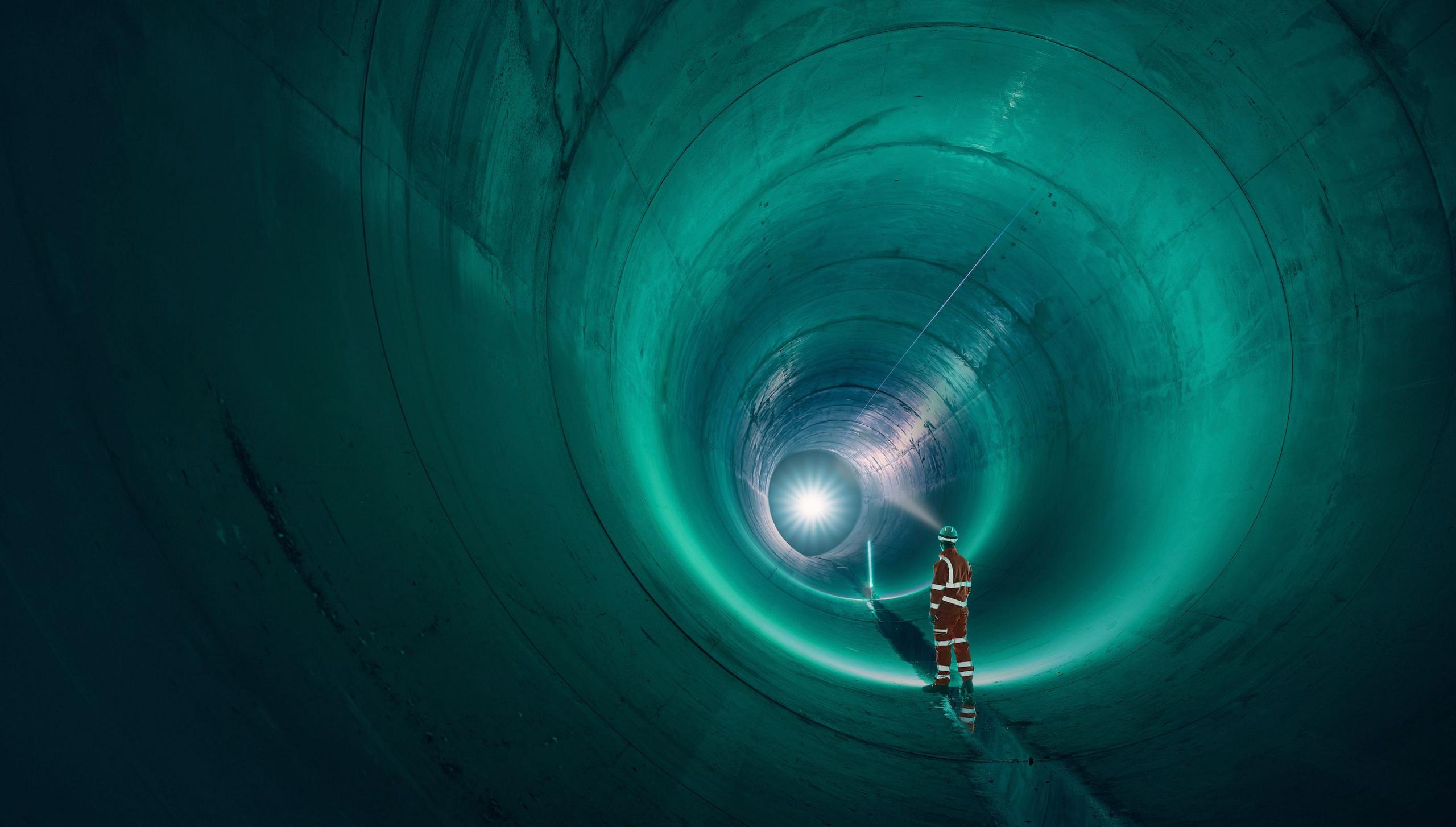Mass clean up of 'Wet Wipe Island' gets under way
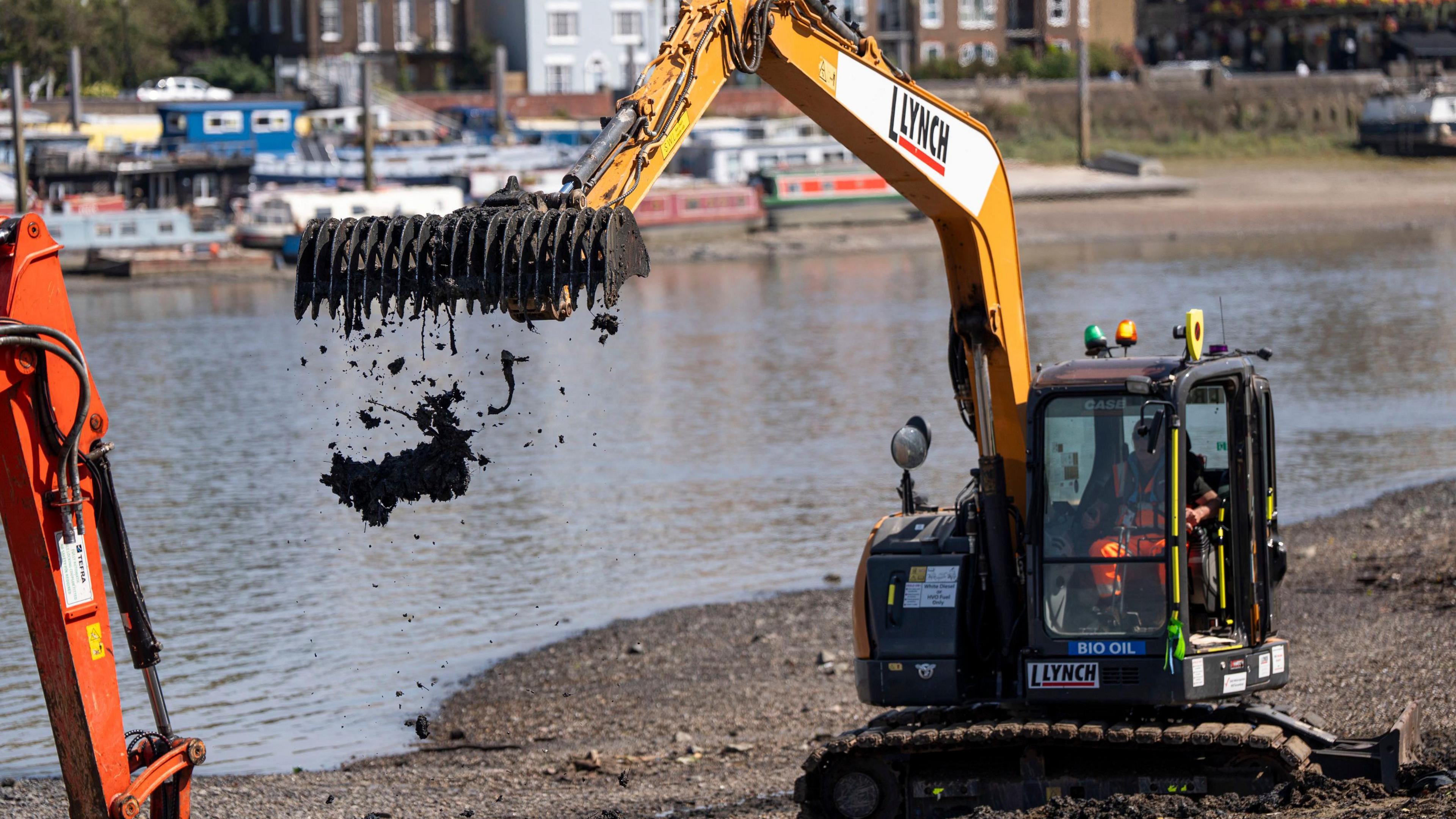
A local school has given access to its grounds to allow an eight-tonne excavator to remove the "island", which is 3ft (1m) high in places.
- Published
Work has started to get rid of a build up of wet wipes along a stretch of the River Thames in west London known locally as "Wet Wipe Island".
The Port of London Authority (PLA) has said it will remove about 180 tonnes of congealed wet wipes – the equivalent to the weight of 15 double decker London buses – that has formed along a 820ft (250m) stretch of the tidal Thames near Hammersmith Bridge.
St Paul's School in Barnes is giving access to its grounds to allow an eight-tonne excavator to remove the "island", which is 3ft (1m) high in places.
The authority added that the wet wipes and other pollutants would be taken away in skips and disposed of responsibly.
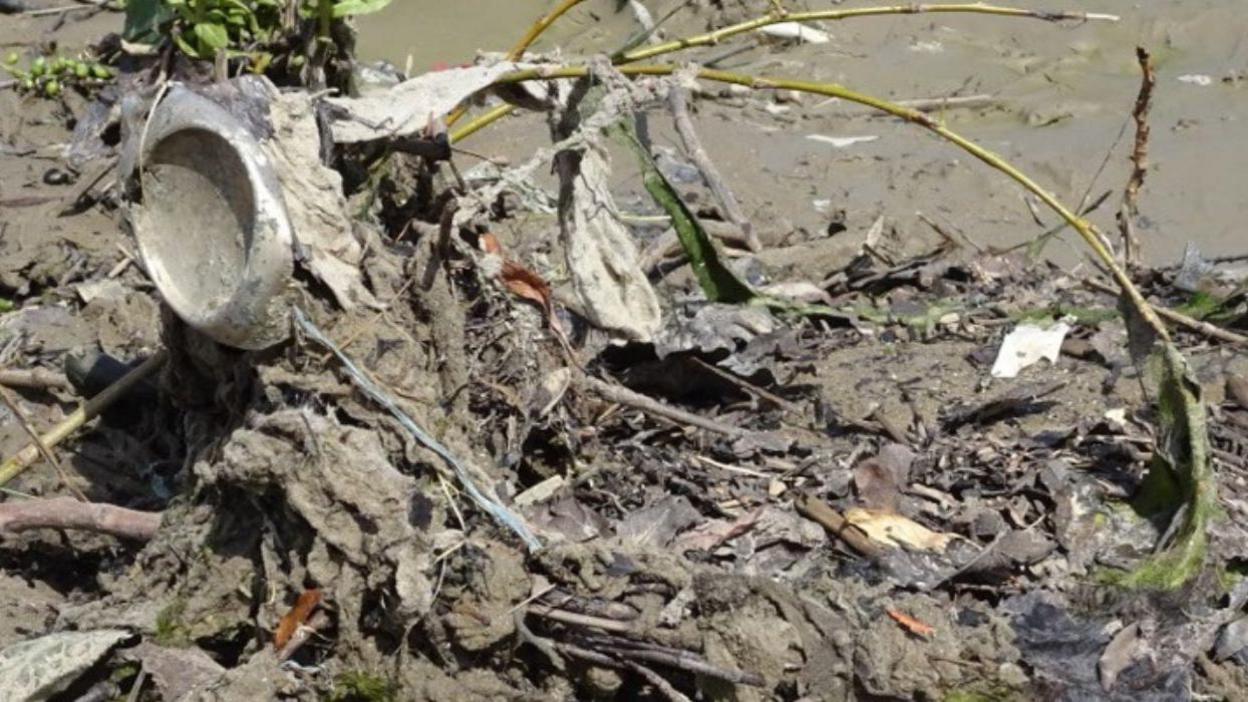
Thames21 and its volunteers have been monitoring the island since 2017
The island, which is about the size of two tennis courts, has changed the course of the river and potentially harmed the aquatic wildlife and ecology in the area, the PLA added.
Efforts to clean wet wipes from the environment have previously relied on people removing them by hand.
Inspired by the work of volunteers at Thames 21, and with support from Thames Water, the PLA said they decided to take a lead in co-ordinating larger scale action to remove this "unsightly and harmful mess".
Thames21 and its volunteers have been monitoring the island since 2017.
The PLA added that the project was part of an ambition to improve river health in the Thames.
'World's greatest river'
Thames Water recently announced a further £1.8bn investment to improve river health across London, and last year connected its £4.6bn Thames Tideway Tunnel to support the reduction of sewage discharges into the tidal Thames by 95%.
Grace Rawnsley from the PLA said: "For too long, 'Wet Wipe Island' in Hammersmith has been a source of environmental harm and an embarrassment to the capital.
"This is the first time anyone has sought to execute a mass, mechanical removal of wet wipes in this way.
"We will continue to bring innovation and investment to help the world's greatest river thrive."
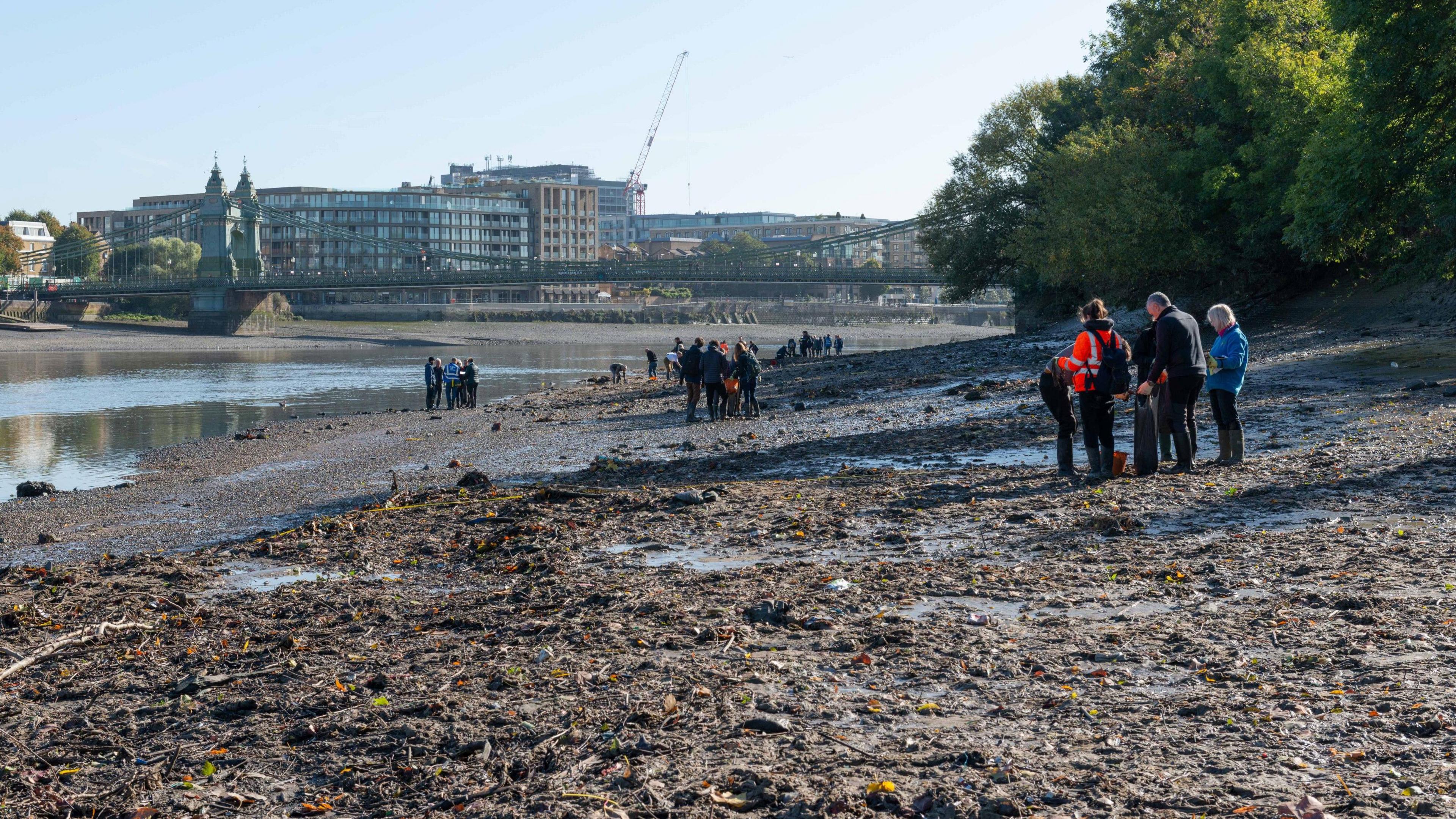
Efforts to clean wet wipes have previously relied on people removing them by hand
Chris Coode, the CEO at Thames21, said: "Plastic wet wipes have no place in our rivers or natural environment, so it's terrific news that action is being taken to remove 'Wet Wipe Island' in the Thames.
"This vital move is a crucial step towards protecting the health of the River Thames and its wildlife, as it will reduce the introduction of microplastics into the environment from this site."
He added: "Thames21 has been pushing for a ban on plastics in wet wipes. However, we would like to see more systemic change to tackle the issue of plastics entering the environment via wet wipes and other sanitary waste."
The clean up project is expected to take up to a month to complete.
Listen to the best of BBC Radio London on Sounds and follow BBC London on Facebook, external, X, external and Instagram, external. Send your story ideas to hello.bbclondon@bbc.co.uk, external
Related topics
Similar stories
- Published25 March
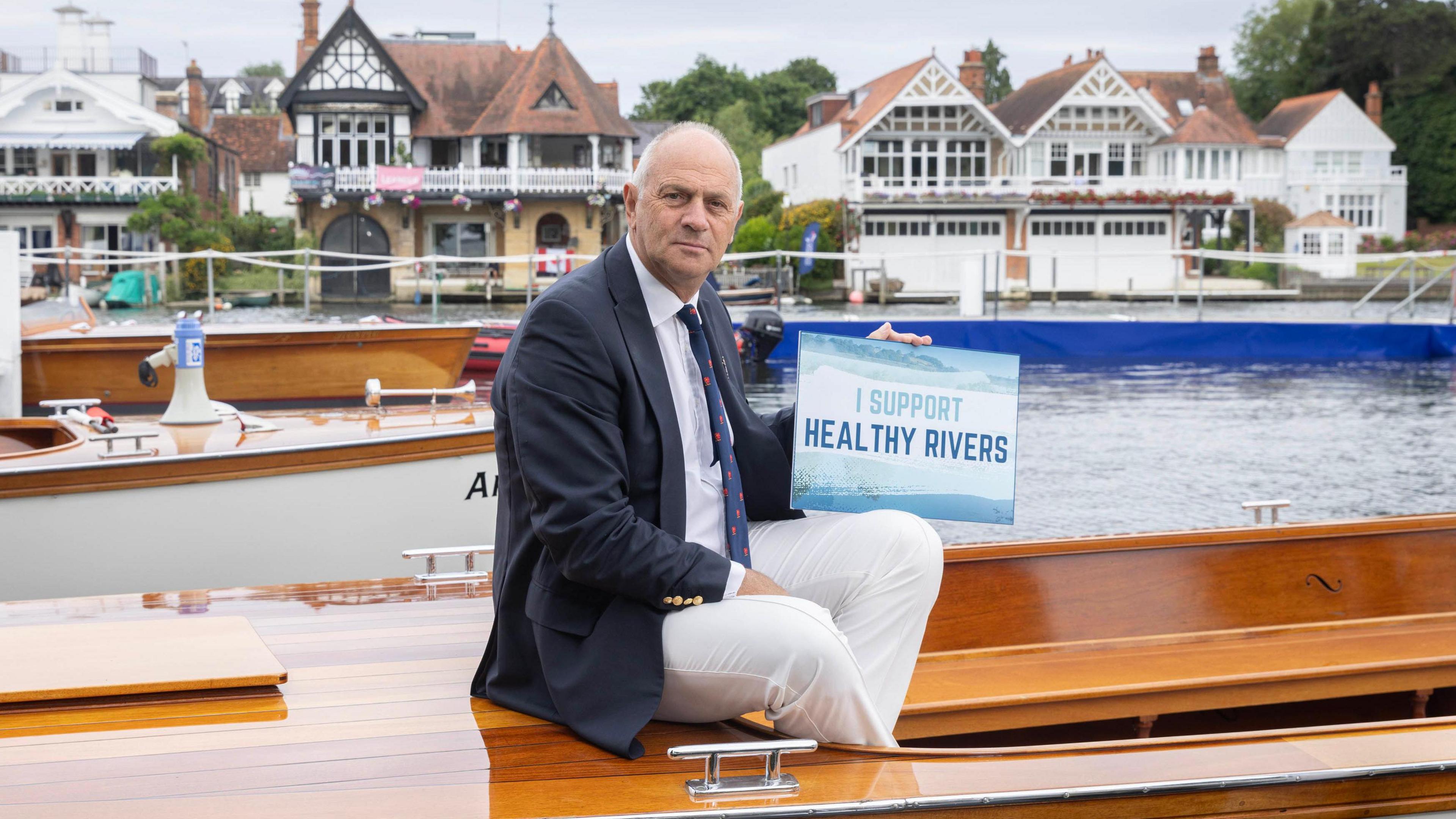
- Published13 March
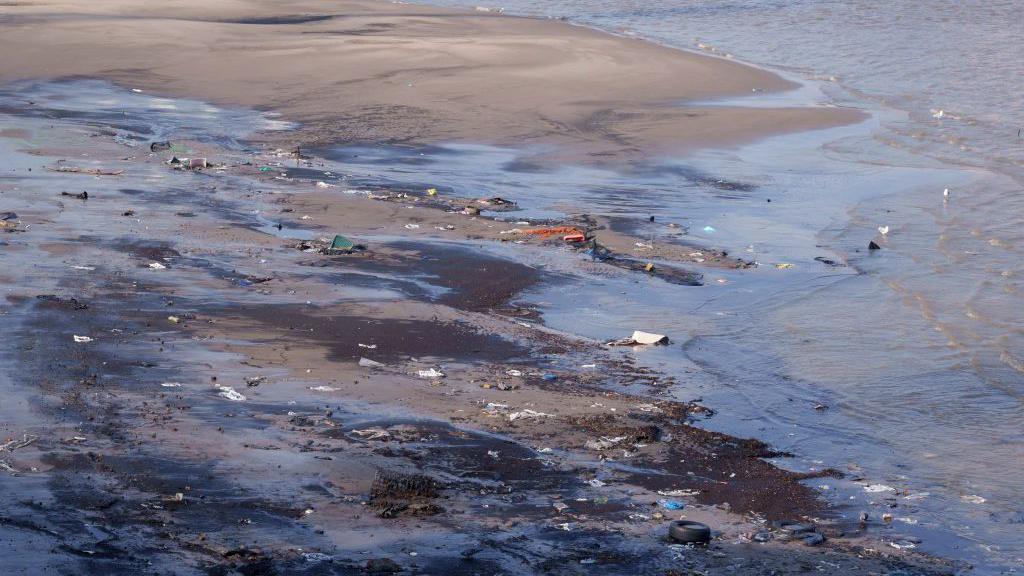
- Published14 February
